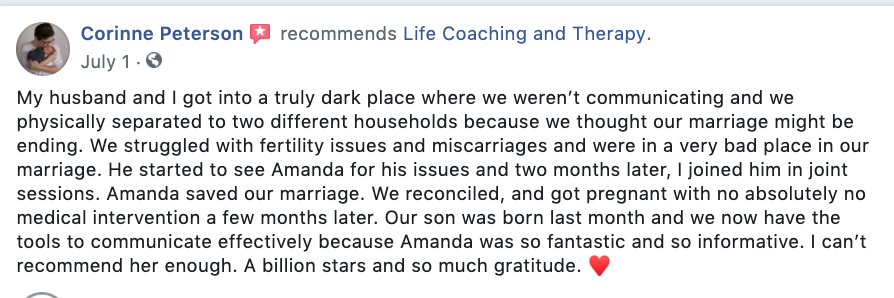Sex Education You Never Got
Sex Education You Never Got
Whether you’re in a relationship or solo, adolescent, or in your 20s or 30s, sex education is a never-ending process. Often, we’ll wrongly assume that just because someone has passed their adolescent year, they know everything there is about sex, dating, and relationship, yet this is not the case.
This area is so wide that it would probably take us an entire lifetime to learn everything there is about sex. Dr. Sara and I did a presentation on this before the pandemic and I would love to share here!
Learning about sex shouldn’t begin after your first sexual experience, yet as this topic was until recently considered taboo, things are slowly starting to change. Young people are educating themselves through conversations with their family members and friends, through schools, media, etc. By understanding sexual education doesn’t involve only sex, you will better manage situations you find yourself in, from dating to being in serious, long-term relationships.
Dating as an Opportunity
Things are not just fast-forwarded to sex. To get to know each other better, people will typically start dating before they decide to move to a more physical phase that involves touching, kissing, and having sex. If dating is a stressful experience for you, consider applying an opportunistic or zen philosophy in dating. In other words, you will have to be willing and open to confront anything that’s causing any unpleasant emotions within yourself.
Instead of allowing these emotions to take control over you while you’re trying to ignore them, take a look at them to understand them better. What makes you feel like this? Is it a certain situation or expectation that is causing discomfort in you? Have you had this feeling before? Start exploring it instead of ignoring it and you will soon notice how your attitude towards dating is changing. So, before jumping into exploring sex, make sure you feel good about dating new people.
The Science Of Sex
How you feel about sex is one thing, yet knowing the technical details of sexual pleasure is crucial to enjoying sex and having orgasms. Understanding the difference between the internal and external clitoris, the labia majora and minora, uretha and vagina hole are just some of the terms you’ll need to learn to understand better the female body, and see what works for you and what doesn’t.
There are many different paths to a female orgasm, which doesn’t necessarily include only sex organs. By touching and kissing a person’s nipples, they can experience a wave of sexual excitement which followed by, for instance, touching the G-Spot can lead to an incredible orgasm. As every person is different, their likes and dislikes in sex will differ as well.
Physiology Behind The Orgasm
If you’ve ever orgasmed before, you know that this feeling is undeniably good, however, to learn how to have frequent orgasms you’ll continue enjoying, it’s necessary to know at least some basics around the big O. Having an orgasm is feeling your vagina, uterus, anus, and sometimes even other body parts contracting rapidly from 3 to 15 times, squeezing for a little less that one second at a time.
The female orgasm can also include ejaculation, the release of a liquid out of the urethra. As every sex experience is different for each person, orgasms might feel different as well. That’s why it’s vital to learn what feels good and what doesn’t for you. Understanding what excites you and sharing it with your sex partner to experience the four phases of orgasm:
- Excitement: Initially being turned on.
- Plateau: Repetitive motion that feels pleasurable.
- Orgasm: The burst of pleasure and release.
- Resolution: The refractory period.
Although these phases are accurate, they don’t need to occur every time. Also, for some women, sexual pleasure doesn’t always lead to orgasm. On the other hand, having an orgasm at the end of the sexual experience doesn’t imply that the sex was amazing. As said, it’s quite individual, so your learning about sex might be different from how your friend is learning about their body and sexual pleasure.
Types of Sex
There are hundreds and hundreds of sex positions you can try out with your sex partner. However, if you’re looking for more general categories of sex, you can start learning about different types of sex. You can choose between clitoral, vaginal, cervical, and anal sex.
With all four types of sex, a woman can experience orgasm. Depending on what you prefer, you can combine a few sex types in one experience or stick to the one that makes you feel completely excited. If you lack experience and would like to see how you like each of these types of sex, you can easily try it on your own. Use a sex toy like a vibrator or your fingers instead of a penis. For instance, with clitoral sex, you can insert your fingers or the toy into your vagina and move them in a “come hither” motion in the direction of your belly button.
Taking Care Of Your Health
Taking care of your sexual health goes beyond just having protected sex. As much as using condoms protect you from unwanted pregnancy and sexually transmitted infections (STIs). You will need to be careful which soap you use, underwear you wear, the food you eat, etc. Taking care of yourself is essential for a fulfilled and satisfied sexual life.
If you’re keen on practicing anal sex, make sure you shorten your nails, take off any jewelry such as rings or bracelets, and use lubricant for easier penetration. Be responsible and discuss all these aspects with your sex partner as they might prefer something different from what you had in mind. Having an open conversation is the first step leading towards great sex as it helps partners exchange ideas and get to know each other better before engaging in any sexual activity.
Are you ready to learn more and unlock a more satisfying experience?
BLISS: Proven Methods for Improving the Female Orgasm
Stiff: Solutions for Erectile Dysfunction On-Demand Webinar
About Life Coaching and Therapy
Life Coaching and Therapy (LCAT) is a therapy and coaching practice that transforms our clients lives through our flexible. Multi-technique approach and pleasure-skills training provided by systematically-trained and licensed therapists!
 Get to know our founder and owner, Amanda Pasciucco, (a.k.a. The Sex Healer) PhD, Licensed Marriage and Family Therapist (LMFT), and an AASECT Certified Sex Therapist (CST) that has developed innovative therapy programs and therapy videos that get results.
Get to know our founder and owner, Amanda Pasciucco, (a.k.a. The Sex Healer) PhD, Licensed Marriage and Family Therapist (LMFT), and an AASECT Certified Sex Therapist (CST) that has developed innovative therapy programs and therapy videos that get results.
Our team of compassionate, licensed therapists and certified sex therapists help all clients who visit us for a variety of personal, relationship, intimacy and sex problems.
LCAT provides on-site appointments, as well as video chat and text therapy programs.
Learn more about how LCAT can help improve your life at What We Do.









































